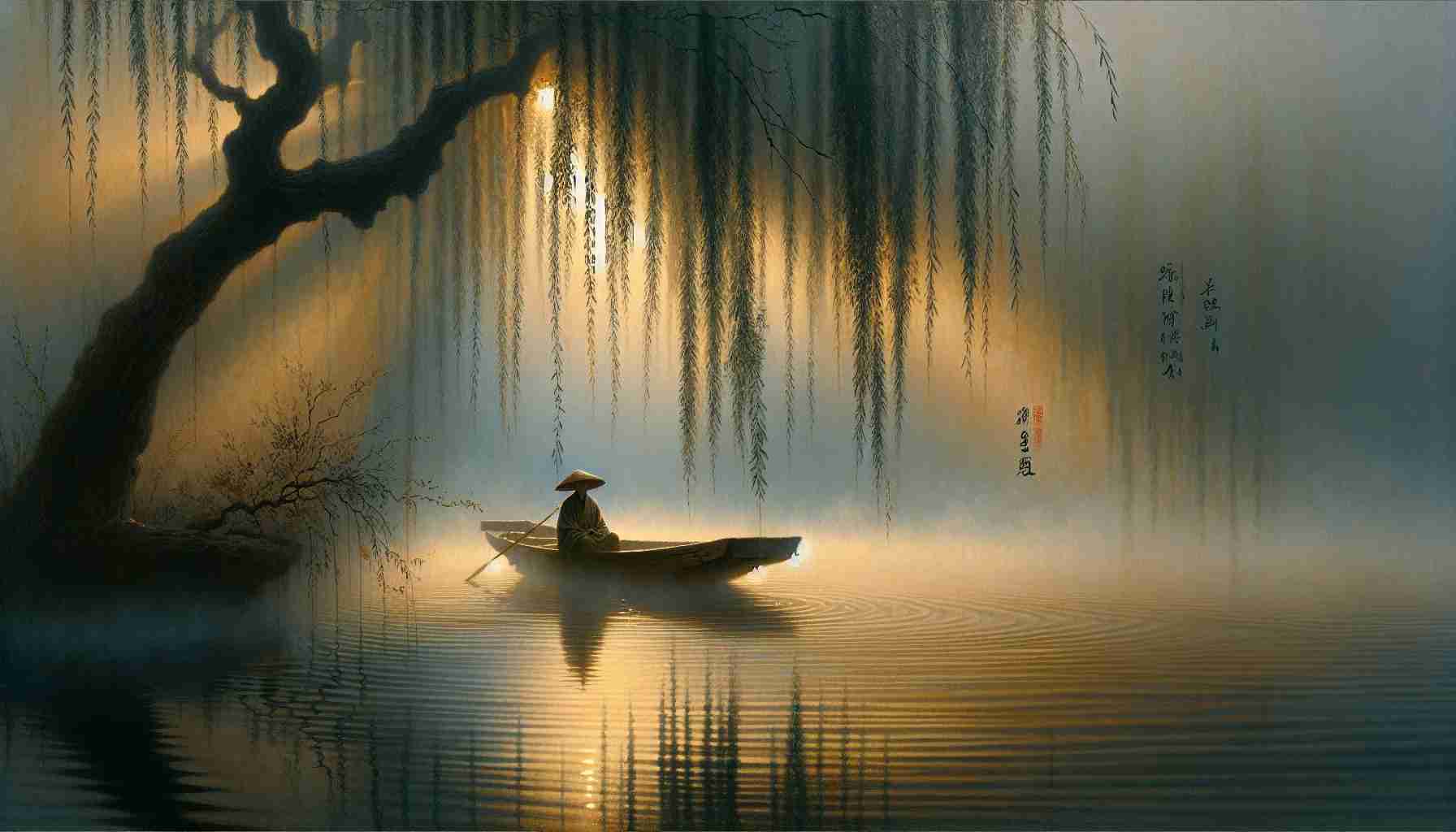

The wind that morning carried a whisper across the lake, and I followed it in silence. I was a younger monk then, still learning, still trying to understand things that seemed too big for me. Our master had given us a task: take the boat out and bring back water lilies for the temple garden. I thought it was a simple job, but it became much more.
I put both hands on the oar and began to row. The air was cool, the sky a gentle silver. My mind, though, was stormy. I wanted to be the best. I rowed harder than I needed to, trying to move faster, trying to impress my teacher. The harder I pulled, the slower it felt. Sweat dripped into my eyes, and still, the boat seemed stubborn.
Then it happened.
Another boat appeared in the fog. It was coming straight at me. I shouted and waved, but it didn’t stop. It slammed into my side, the thud loud and sudden. I stood up, full of anger, ready to yell at whoever was in the other boat.
But there was no one.
The other boat was empty.
I stood there, frozen. My mouth still open with words I no longer wanted to say. An empty boat couldn’t be blamed. It didn't try to hurt me. It had just drifted with the current, quiet and simple.
That’s when I saw him—Master Wen, sitting still on the far side of the lake, under a willow tree. I hadn’t noticed him before. Somehow, I think he knew this would happen.
Later that day, when we returned to the temple, I asked him, “Master, why did the empty boat anger me so much?”
He smiled gently. “You weren’t angry at the boat,” he said. “You were angry at yourself. At your need for control, for speed, for praise.”
I didn’t reply right away. The quiet sat around us like warm tea.
He continued, “When we see another person, we blame. We fear. We prepare to fight. But when we see an empty boat, it shows us ourselves. There's no one to blame but what’s already inside.”
That day, I began to understand the teaching from the book of Liezi. The invisible gate is not found where everyone looks. It’s not up a mountain or behind a temple door. It’s here—within the quiet, within simplicity. Like two sides of a riverbank—yin and yang—balance comes when we let go and drift gently.
Now, many seasons have passed. I no longer try to be the best. I just try to be present and still, like the empty boat.
And every time I feel anger, or the rush to do more, I close my eyes and return to that lake. I see the fog, feel the cool air, and remember—
Sometimes, the most powerful lessons float in without anyone steering.
And that’s when the invisible gate appears.
The wind that morning carried a whisper across the lake, and I followed it in silence. I was a younger monk then, still learning, still trying to understand things that seemed too big for me. Our master had given us a task: take the boat out and bring back water lilies for the temple garden. I thought it was a simple job, but it became much more.
I put both hands on the oar and began to row. The air was cool, the sky a gentle silver. My mind, though, was stormy. I wanted to be the best. I rowed harder than I needed to, trying to move faster, trying to impress my teacher. The harder I pulled, the slower it felt. Sweat dripped into my eyes, and still, the boat seemed stubborn.
Then it happened.
Another boat appeared in the fog. It was coming straight at me. I shouted and waved, but it didn’t stop. It slammed into my side, the thud loud and sudden. I stood up, full of anger, ready to yell at whoever was in the other boat.
But there was no one.
The other boat was empty.
I stood there, frozen. My mouth still open with words I no longer wanted to say. An empty boat couldn’t be blamed. It didn't try to hurt me. It had just drifted with the current, quiet and simple.
That’s when I saw him—Master Wen, sitting still on the far side of the lake, under a willow tree. I hadn’t noticed him before. Somehow, I think he knew this would happen.
Later that day, when we returned to the temple, I asked him, “Master, why did the empty boat anger me so much?”
He smiled gently. “You weren’t angry at the boat,” he said. “You were angry at yourself. At your need for control, for speed, for praise.”
I didn’t reply right away. The quiet sat around us like warm tea.
He continued, “When we see another person, we blame. We fear. We prepare to fight. But when we see an empty boat, it shows us ourselves. There's no one to blame but what’s already inside.”
That day, I began to understand the teaching from the book of Liezi. The invisible gate is not found where everyone looks. It’s not up a mountain or behind a temple door. It’s here—within the quiet, within simplicity. Like two sides of a riverbank—yin and yang—balance comes when we let go and drift gently.
Now, many seasons have passed. I no longer try to be the best. I just try to be present and still, like the empty boat.
And every time I feel anger, or the rush to do more, I close my eyes and return to that lake. I see the fog, feel the cool air, and remember—
Sometimes, the most powerful lessons float in without anyone steering.
And that’s when the invisible gate appears.